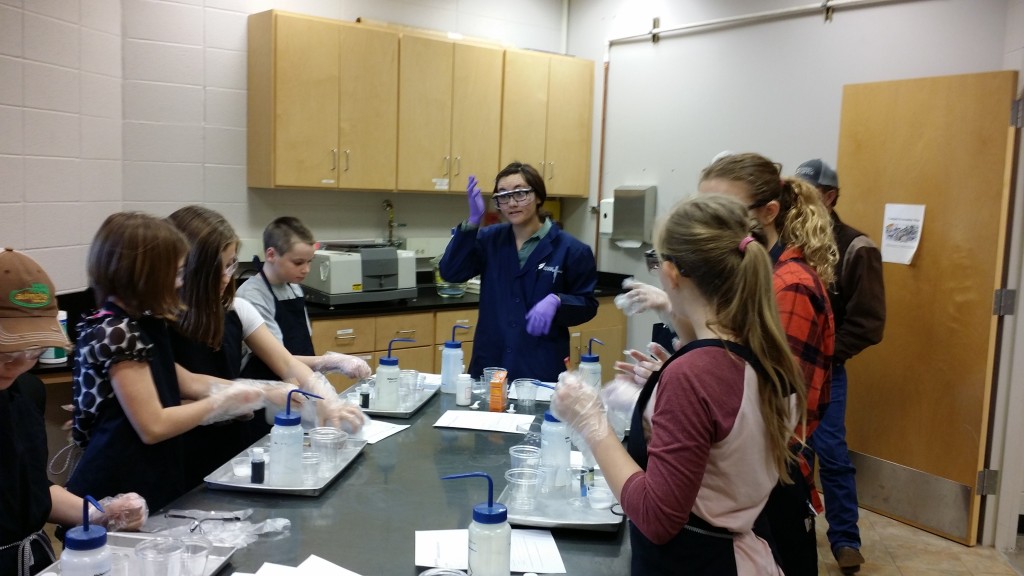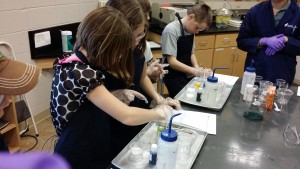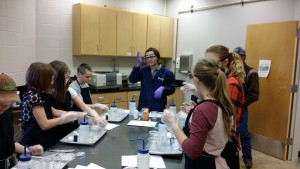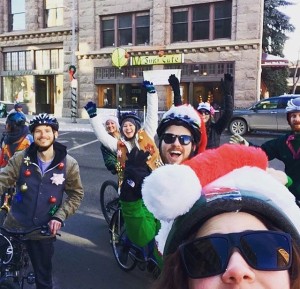Read about Alex’s first experience giving a lab tour at MSUN, making fuel out of Bark Beetle pine tree kill, designing hands-on STEM activities, and more:
Five months. It’s been five months since I left an Idaho mountaintop for the Hi-Line plains. In those five months I’ve turned twenty-one, I’ve eaten my first Indian taco, and I’ve gotten a cat. But, beyond new experiences in my personal life, I’ve also done a lot of new things as a service member I had never thought myself capable of.
Our high school science fair students are coming to the end of their time here—the science fair is in less than a month! I’ve been working with these girls since I got here, trying to help them turn Bark Beetle pine tree kill into some usable form of biofuel. The experimentation is done. We’ve packed up the samples, done our last big analysis. Now we’re at the truly difficult part—and they thought the extraction process was hard—we’re at the part where these young ladies, a sophomore and a senior in high school, are trying to understand all the organic chemistry behind what we did. I barely understand it and I have a degree in chemistry.
The research associate and I are telling these girls about how most people spend two, maybe three, semesters studying organic chemistry to maybe understand the bare minimum of the process. They’ve tackled an amazing feat in learning what they have. One of the students, with her head spinning, looks at the spectrums of data and laughs. She wants to be a physical therapist and is going to the University of Montana next year. She says, “I don’t think I’ll ever be able to understand this.” And I laugh too because I know it’s not true. I know she’s extremely intelligent and she’ll understand it by the end of this month. But I also know the feeling.
Within my first few weeks of serving at the Center I was bombarded with information about the biofuels pathway and about what the Center did. Three weeks in, I followed along on a dazzling tour of the history and function of the Center. It was for some 4-H leaders and it concluded with a lab scale demonstration of how we can make biodiesel from canola oil. I was boggled by the end. I was sure I’d never be able to keep the different instruments straight nor would I ever understand what we did here. I certainly never thought I’d be able to give a tour.
But today I gave my first tour of the labs (see photos above), complete with a demonstration I designed about acid/base chemistry and the environmental impacts of emissions. It was for a group of upper elementary students and, not to toot my own horn, it was a smashing success. Because of all the time I spent trying to develop science, technology, engineering, and math (STEM) extracurricular for students in the area, I talk a lot about building STEM confidence. In my book, STEM confidence doesn’t mean you believe you can complete an experiment successfully. It means that, while you could still mess up, you’re still willing to come up to bat. Before today, I never realized that I didn’t have a whole lot of STEM confidence and my experience here has really built it up. Now, when I’m faced with a new experimental process, I know how to do the research to become familiar. I don’t get the same overwhelming sense of dread I did before at the prospect of messing up. Now, when I talk about how important hands-on activities are for building STEM confidence, I can one hundred percent say I believe it.
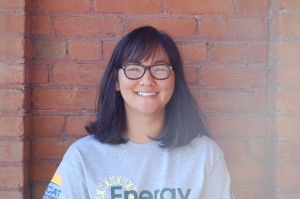 Alexandra Jones recently graduated from Washington and Lee University with a B.S. in Chemistry. She spent the summer of 2015 working for The Nature Conservancy of Eastern Idaho conducting research and assisting with ranch labor. Alex serves as the Bio-Energy Educatory at MSU Northern’s Bio-Energy Innovation and Testing Center. She assists in curriculum development for a 2016 summer science camp in addition to educational outreach efforts including tours of the center, biodiesel learning seminars and science fair education opportunities. Alex will also be responsible for completing a research project involving Camelina and woody biomass sources used for bio-based jet fuel.
Alexandra Jones recently graduated from Washington and Lee University with a B.S. in Chemistry. She spent the summer of 2015 working for The Nature Conservancy of Eastern Idaho conducting research and assisting with ranch labor. Alex serves as the Bio-Energy Educatory at MSU Northern’s Bio-Energy Innovation and Testing Center. She assists in curriculum development for a 2016 summer science camp in addition to educational outreach efforts including tours of the center, biodiesel learning seminars and science fair education opportunities. Alex will also be responsible for completing a research project involving Camelina and woody biomass sources used for bio-based jet fuel.

